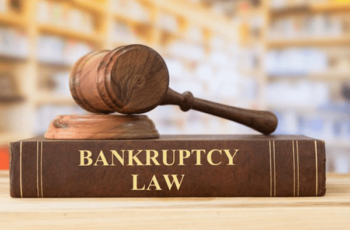Compliance Framework for Consumer Protection (E-Commerce) Rules, 2020
Introduction
With the advent of the Consumer Protection Act, 2019 (CPA) coming into force, the horizon of protection has been enlarged as the new Act also includes the term ‘e-commerce’. The CPA defines electronic commerce as “buying or selling of goods or services including digital products over digital or electronic network”[1].
The e-commerce market has seen an all-time high and owing to the chaos created by the pandemic, reliance on the electronic network has significantly increased. The timely introduction of the Consumer Protection (E-commerce) Rules, 2020[2] compliments the parent Act by ensuring smooth functioning and provides a double layer protection for consumers who are using various e-commerce platforms. Hence, with these new Rules governing the electronic market, it has become mandatory for e-commerce entities in the marketplace to comply with certain legalities in order to avoid any penalties.
Definition of an e-commerce entity
As the application of these Rules is related to E-commerce platforms, the Rules have specifically stated the definition of the same in order to avoid any question related to interpretation of its meaning. These Rules have defined E-commerce entities as- “any person who owns, operates or manages digital or electronic facility or platform for electronic commerce, but does not include a seller offering his goods or services for sale on a marketplace e-commerce entity.” Moreover, the Rules have also classified the e-commerce entities into marketplace e-commerce entities which are defined under Rule 3(g) and Inventory e-commerce entities which are defined under Rule 3(f). This classification has been particularly made to avoid any confusion between these two types of entities at a later point in time.
Applicability of Rules
As per Rule (2) of E-commerce Rules, the scope and applicability has been defined in very clear words. The Rule states that these rules shall apply to –
- all goods and services bought or sold over digital or electronic network including digital products
- all models of e-commerce, including marketplace and inventory models of e-commerce
- all e-commerce retail, including multi-channel single brand retailers and single brand retailers in single or multiple formats
- all forms of unfair trade practices across all models of e-commerce
Additionally, an exemption has been added which states that these Rules shall not be made applicable on such activity when carried out in personal capacity and not being part of any professional or commercial activity undertaken on a regular or systematic basis.
This particular exemption is outside the scope of these Rules but a shadow has been cast regarding the undefined meaning of what a regular or systematic basis is which shall narrow the interpretation of the exemption but still remains unclear.[3] Moreover, with the provision of keeping the applicability of these Rules wider, these Rules shall also apply to those entities which though are not established in India but are offering their goods and services to Indian consumers.
General Duties and Liabilities of E-Commerce entities-
- 1. Compliance officer– Appointment of an Indian resident who is a senior functionary or who is appointed as a nodal person of contact who has the duty to ensure compliance with the provision of the CPA and e-commerce rules.
- Disclosure of important information– To bring accountability and transparency in electronic commerce[4], the entity has been obligated to provide the basic information in a clear and accessible manner on its platform. The information that is to be disclosed is as following-
- legal name of the e-commerce entity
- principal geographic address of its headquarters and all branches
- name and details of its website
- contact details of customer care as well as of a grievance officer.
Moreover, when the entity is selling any goods or services that are imported, it is required that the name and details of the importer from whom the goods or services are purchased are properly mentioned on the platform. The entity should also display the information relating to return, refund, exchange, warranty, delivery, etc. It should also provide information on available payment methods, and any other costs or fees, if applicable. The entity must inform its sellers of any differential treatment being offered to any other seller and the entity should also include this in the description in terms and conditions governing the said relationship.
- Establishment of a grievance redressal mechanism- These Rules obligate the entity to bring a grievance redressal mechanism in motion by mandating an appointment of a grievance officer for consumer grievance redressal. It is the duty of the grievance officer to acknowledge the receipt of consumer complaint within forty-eight hours and therefore, to redress the complaint within a period of one month. For easy access, the details of the grievance officer should be displayed on the entity’s platform.
- Consent- The entity must consider only those acts as the consent of the consumers which are not automatically submitted or recorded and which are expressed through an explicit and affirmative action in regard to purchase of any goods or services offered by the former on its platform.
- Non-imposition of cancellation charges- The entity must only impose cancellation charges after confirming purchase if they have themselves borne such similar charges, else they should not impose the cancellation charges for any reason.
- Bar on unfair trade practice, discriminatory-practices, and manipulation of prices- The entity should not manipulate the price of goods and services offered through their platform in order to earn an unreasonable profit. Price modification is only justified after determining the relevant considerations and extraordinary circumstances. Moreover, the entity should not adopt any practice which results in unfair trade during the course of business on its platform and it should not discriminate or arbitrarily classify between the same class of consumers.
- Compliance with the Informational Technology Act, 2000- Rule 5(1) states that if the entity wants to seek exemption from the liability of an intermediary under section 79 of the IT Act, 2000 r/w Intermediary Guidelines, 2011, it has to comply with Clause (2) and (3) of the same section. Section 79 of the IT Act[5] articulates that the intermediary shall not be liable for any third party information, data, or communication link made available or hosted by him subject to provisions of sub-section (2) and (3) that deals with essential conditions which an intermediary must comply with while discharging its functions.
- The undertaking of information provided- The entity shall undertake the guarantee that the information related to descriptions, image, and other content in regard to goods and services offered at the platform is accurate and to the best of the knowledge related to the genuineness of the goods and services in actual.
- Maintenance of record-The entity has to maintain a record of all relevant information which allows for the identification of all sellers who have repeatedly offered goods or services that have previously been removed or access to which has previously been disabled under the Copyright Act, 1957, the Trade Marks Act, 1999 or the IT Act, 2000.
Duties and Liabilities of ‘Sellers on Marketplace’-
- Bar on unfair trade practices- the seller who is offering goods and services on an e-commerce entity should restrict from adopting any unfair trade practices in all circumstances.
- False representation- The seller should not impersonate itself as one of the consumers and further write feedback for their own products on the e-commerce platform. The former has to restrain from false representation of the quality of its goods and services.
- Non-refusal to take back goods- The seller who is offering products through an e-commerce entity should not refuse to take back goods or refund the consideration when the products are found to be defective, spurious, deficient, if it does not match with the characteristics of the products or features, or if the delivery scheduled gets delayed. However, an exemption has been provided in cases where delivery is delayed due to Force Majeure.
- Prior Contract- The seller has to ensure that a prior written contract has been in force between the seller and the e-commerce entity which solicits such sale or offer. The information regarding the contract should also be disclosed by law on the entity’s platform.
- Grievance Redressal officer- The seller who is offering its products through the e-commerce entity has to also appoint a grievance officer for consumer grievance redressal. He is bound to acknowledge the receipt of any consumer complaint within 48 hours and has to redress it within 1 month. The information of the officer should be displayed on the entity’s platform.
- Information disclosure– The seller is bound to disclose all such other information which is necessary for its consumers to know beforehand while dealing with them. Such information includes the specification of products, workplace of the seller, mode of payment, etc.
Duties and Liabilities of Inventory E-Commerce entities-
The duties and liabilities of the ‘Inventory e-commerce entities’ as explained in the Rules are exactly similar to the duties and liabilities of the ‘Seller on Marketplace’ which has been elaborately discussed above. Hence, a similar essence can be drawn here.
Conclusion
Enforcement of e-commerce rules by the Central Government can be seen as progressive step towards ensuring the meaning of Consumer protection and their rights in its truest sense.
The Government has understood the concept of ‘e-revolution’[6] and has analyzed the incessant growth in the new modus operandi of buying and selling.
Nonetheless, the Rules are very comprehensive and are a step towards inclusivity; however, the question of liability is still an uncertainty as the jurisprudence related to Intermediary liability is currently at an embryonic stage in India.
For the time being, the market players who are under the scope of these Rules have to timely bring their functions in compliance with this framework. As the critics have mentioned that the Act is considerable, the industry will get a very little time to react on the shortcoming or merits of the Rules as the compliance and implementation mode is immediate.
All in all, these Rules blended with the parent Act shall for the time being serve as a robust framework for allowing the e-commerce sector to flourish ethically while staying within the boundaries of law.
[1] Section 2(16), http://egazette.nic.in/WriteReadData/2019/210422.pdf.
[2] https://consumeraffairs.nic.in/sites/default/files/E%20commerce%20rules.pdf.
[3] https://corporate.cyrilamarchandblogs.com/2020/08/consumer-protection-e-commerce-rules-need-for-more-clarity/.
[4]https://www.indialegallive.com/special/consumer-protection-e-commerce-rules-2020#:~:text=The%20Consumer%20Protection%20(E%2Dcommerce,2020.&text=The%20Act%20defines%20’e%2Dcommerce,over%20digital%20or%20electronic%20network%E2%80%9D.
[5] https://indiankanoon.org/doc/844026/#:~:text=Section%2079%20in%20The%20Information%20Technology%20Act%2C%202000&text=(1)%20Notwithstanding%20anything%20contained%20in,available%20or%20hosted%20by%20him.
[6] https://www.livelaw.in/columns/consumer-protection-in-the-online-marketplace-an-analysis-of-consumer-protection-e-commerce-rules-2020-161516









 He holds a Bachelor’s and Master’s Degree in Corporate Secretaryship and a Degree in Law. He is a Fellow member of the Institute of Company Secretaries of India and an Associate Member of the Corporate Governance Institute, UK and Ireland. He has also completed a program from ISB on ‘Value Creation through Mergers and Acquisitions.
He holds a Bachelor’s and Master’s Degree in Corporate Secretaryship and a Degree in Law. He is a Fellow member of the Institute of Company Secretaries of India and an Associate Member of the Corporate Governance Institute, UK and Ireland. He has also completed a program from ISB on ‘Value Creation through Mergers and Acquisitions. Mr P Muthusamy is an Indian Revenue Service (IRS) officer with an outstanding career of 30+ years of experience and expertise in all niche areas of Indirect Taxes covering a wide spectrum including GST, Customs, GATT Valuation, Central Excise and Foreign Trade.
Mr P Muthusamy is an Indian Revenue Service (IRS) officer with an outstanding career of 30+ years of experience and expertise in all niche areas of Indirect Taxes covering a wide spectrum including GST, Customs, GATT Valuation, Central Excise and Foreign Trade. During his judicial role, he heard and decided a large number of cases, including some of the most sensitive, complicated, and high-stake matters on insolvency and bankruptcy, including many cases on resolution plans, shareholder disputes and Schemes of Amalgamation, De-mergers, restructuring etc.,
During his judicial role, he heard and decided a large number of cases, including some of the most sensitive, complicated, and high-stake matters on insolvency and bankruptcy, including many cases on resolution plans, shareholder disputes and Schemes of Amalgamation, De-mergers, restructuring etc., Ms. Sarah Abraham has been enrolled with the Bar Council of Tamil Nadu since 1998. Her areas of practice include Shareholder Disputes, Corporate Compliances, Mergers and Acquisitions, Private Equity/ Venture Capital Agreements and allied disputes, Information Technology Contracts, Intellectual Property, General Commercial Agreements, Litigation, Arbitration and Mediation.
Ms. Sarah Abraham has been enrolled with the Bar Council of Tamil Nadu since 1998. Her areas of practice include Shareholder Disputes, Corporate Compliances, Mergers and Acquisitions, Private Equity/ Venture Capital Agreements and allied disputes, Information Technology Contracts, Intellectual Property, General Commercial Agreements, Litigation, Arbitration and Mediation. A K Mylsamy is the Founder, Managing Partner and the anchor of the firm. He holds a Degree in law and a Degree in Literature. He is enrolled with the Bar Council of Tamil Nadu.
A K Mylsamy is the Founder, Managing Partner and the anchor of the firm. He holds a Degree in law and a Degree in Literature. He is enrolled with the Bar Council of Tamil Nadu. M Subathra holds a Degree in law and a Master’s Degree in International Business Law from the University of Manchester, United Kingdom. She is enrolled with the Bar Council of Tamil Nadu.
M Subathra holds a Degree in law and a Master’s Degree in International Business Law from the University of Manchester, United Kingdom. She is enrolled with the Bar Council of Tamil Nadu. Mr. K Rajendran is a former Indian Revenue Service (IRS) officer with a distinguished service of 35 years in the Indirect Taxation Department with rich experience and expertise in the fields of Customs, Central Excise, Service Tax and GST. He possesses Master’s Degree in English literature. Prior to joining the Department, he served for the All India Radio, Coimbatore for a period of about 4 years.
Mr. K Rajendran is a former Indian Revenue Service (IRS) officer with a distinguished service of 35 years in the Indirect Taxation Department with rich experience and expertise in the fields of Customs, Central Excise, Service Tax and GST. He possesses Master’s Degree in English literature. Prior to joining the Department, he served for the All India Radio, Coimbatore for a period of about 4 years. An MBA from the Indian Institute of Management, Calcutta, and an M.Sc. in Tourism Management from the Scottish Hotel School, UK, Ashok Anantram was one fo the earliest IIM graduates to enter the Indian hospitality industry. He joined India Tourism Development Corporation (ITDC) in 1970 and after a brief stint proceeded to the UK on a scholarship. On his return to India, he joined ITC Hotels Limited in 1975. Over the 30 years in this Organisation, he held senior leadership positions in Sales & Marketing and was its Vice President – Sales & Marketing. He was closely involved in decision making at the corporate level and saw the chain grow from a single hotel in 1975 to a very large multi-brand professional hospitality group.
An MBA from the Indian Institute of Management, Calcutta, and an M.Sc. in Tourism Management from the Scottish Hotel School, UK, Ashok Anantram was one fo the earliest IIM graduates to enter the Indian hospitality industry. He joined India Tourism Development Corporation (ITDC) in 1970 and after a brief stint proceeded to the UK on a scholarship. On his return to India, he joined ITC Hotels Limited in 1975. Over the 30 years in this Organisation, he held senior leadership positions in Sales & Marketing and was its Vice President – Sales & Marketing. He was closely involved in decision making at the corporate level and saw the chain grow from a single hotel in 1975 to a very large multi-brand professional hospitality group. Mani holds a Bachelor Degree in Science and P.G. Diploma in Journalism and Public Relations. He has a rich and varied experience of over 4 decades in Banking, Finance, Hospitality and freelance Journalism. He began his career with Andhra Bank and had the benefit of several training programs in Banking.
Mani holds a Bachelor Degree in Science and P.G. Diploma in Journalism and Public Relations. He has a rich and varied experience of over 4 decades in Banking, Finance, Hospitality and freelance Journalism. He began his career with Andhra Bank and had the benefit of several training programs in Banking. Mr. Kailash Chandra Kala joined the Department of Revenue, Ministry of Finance as ‘Customs Appraiser’ at Mumbai in the year 1993.
Mr. Kailash Chandra Kala joined the Department of Revenue, Ministry of Finance as ‘Customs Appraiser’ at Mumbai in the year 1993.
 S Ramanujam, is a Chartered Accountant with over 40 years of experience and specialization in areas of Corporate Tax, Mergers or Demergers, Restructuring and Acquisitions. He worked as the Executive Vice-President, Group Taxation of the UB Group, Bangalore.
S Ramanujam, is a Chartered Accountant with over 40 years of experience and specialization in areas of Corporate Tax, Mergers or Demergers, Restructuring and Acquisitions. He worked as the Executive Vice-President, Group Taxation of the UB Group, Bangalore. K K Balu holds a degree in B.A and B.L and is a Corporate Lawyer having over 50 years of Legal, Teaching and Judicial experience.
K K Balu holds a degree in B.A and B.L and is a Corporate Lawyer having over 50 years of Legal, Teaching and Judicial experience. Justice M. Jaichandren hails from an illustrious family of lawyers, academics and politicians. Justice Jaichandren majored in criminology and then qualified as a lawyer by securing a gold medal. He successfully practiced in the Madras High Court and appeared in several civil, criminal, consumer, labour, administrative and debt recovery tribunals. He held office as an Advocate for the Government (Writs Side) in Chennai and was on the panel of several government organizations as senior counsel. His true passion lay in practicing Constitutional laws with focus on writs in the Madras High Court. He was appointed Judge, High Court of Madras in December 2005 and retired in February 2017.
Justice M. Jaichandren hails from an illustrious family of lawyers, academics and politicians. Justice Jaichandren majored in criminology and then qualified as a lawyer by securing a gold medal. He successfully practiced in the Madras High Court and appeared in several civil, criminal, consumer, labour, administrative and debt recovery tribunals. He held office as an Advocate for the Government (Writs Side) in Chennai and was on the panel of several government organizations as senior counsel. His true passion lay in practicing Constitutional laws with focus on writs in the Madras High Court. He was appointed Judge, High Court of Madras in December 2005 and retired in February 2017. S Balasubramanian is a Commerce and Law Graduate. He is a member of the Delhi Bar Council, an associate Member of the Institute of Chartered Accountants of India, the Institute of Company Secretaries of India and Management Accountants of India.
S Balasubramanian is a Commerce and Law Graduate. He is a member of the Delhi Bar Council, an associate Member of the Institute of Chartered Accountants of India, the Institute of Company Secretaries of India and Management Accountants of India.